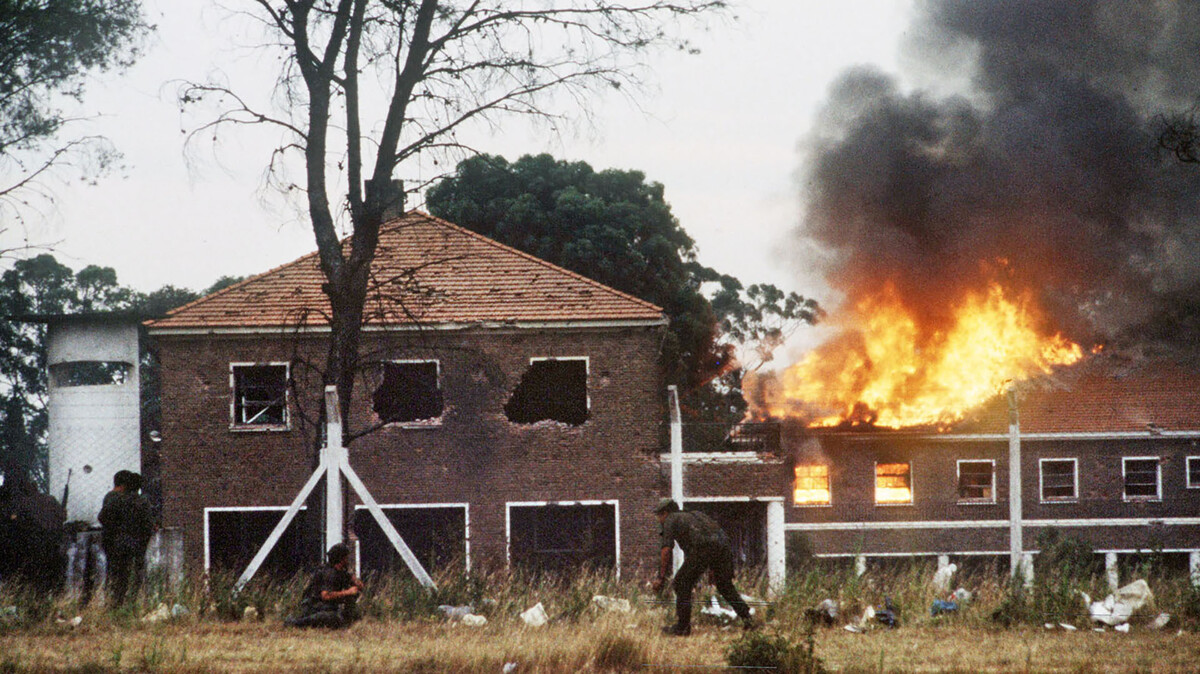
The assault by 46 guerrillas on the La Tablada military barracks, which took place on January 23, 1989, left a profound mark on the government of Raúl Alfonsín and on the recent history of Argentina. All the military personnel who participated alongside Rico in the carapintada movement were prosecuted and dismissed, while Rico passed through them with ease, without being troubled even by the cases related to the fight against terrorism in the 1970s.
The attack on La Tablada not only had immediate repercussions but also unleashed a judicial process that resulted in life imprisonment for 13 combatants and sentences of 10 to 20 years for another seven, who were later released early. During the fighting, reports emerged of the disappearance of four combatants, which led to questioning in international courts regarding the handling of the situation by the radical government of Raúl Alfonsín.
In the context of the 1989 electoral campaign, which would culminate in the victory of Carlos Menem, the Peronist candidate was in Mar del Plata when the attack carried out by the Movimiento Todos por la Patria (MTP) under the leadership of Enrique Gorriarán Merlo unfolded. This attack was justified with the argument of preventing a supposed coup d'état by the "carapintadas," necessitating the intervention of more than 2000 military and police forces to regain control of the barracks.
Sources from the time indicate that several of the attackers had roles at the newspaper Página 12, funded by Gorriarán Merlo, and the spokesperson for the MTP was journalist Alfredo Leuco. It has also been noted that governmental authorities maintained contact with Jorge Baños, the leader of the MTP, suggesting an operation to discredit military sectors known as "carapintadas."
The site of the events, La Tablada, remains abandoned today, reminding us of a dark moment in Argentine history. The episode of the attack, carried out by MTP guerrillas in a stolen Coca Cola truck, has been the subject of debate and analysis in Argentine politics, evidencing the complex interactions between the guerrilla past and current power dynamics.
The confrontation at La Tablada resulted in the deaths of 32 guerrillas, along with 11 dead and 53 injured among military, police, and civilians, generating a climate of tension in Argentine society. Despite the planning, military resistance was fierce and surprised the attackers. Years later, Rico would become involved in politics as a deputy and participate in municipal elections in San Miguel.










